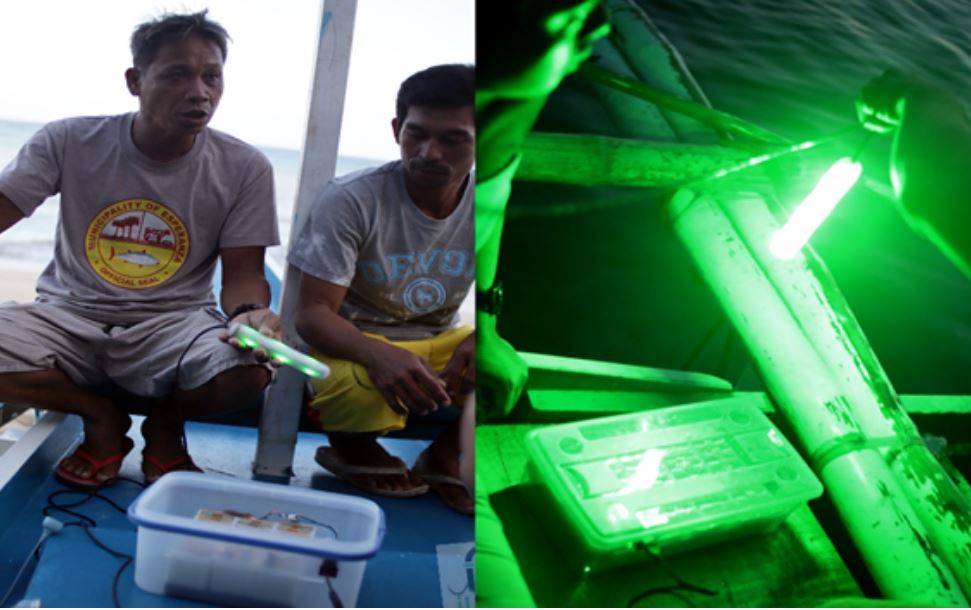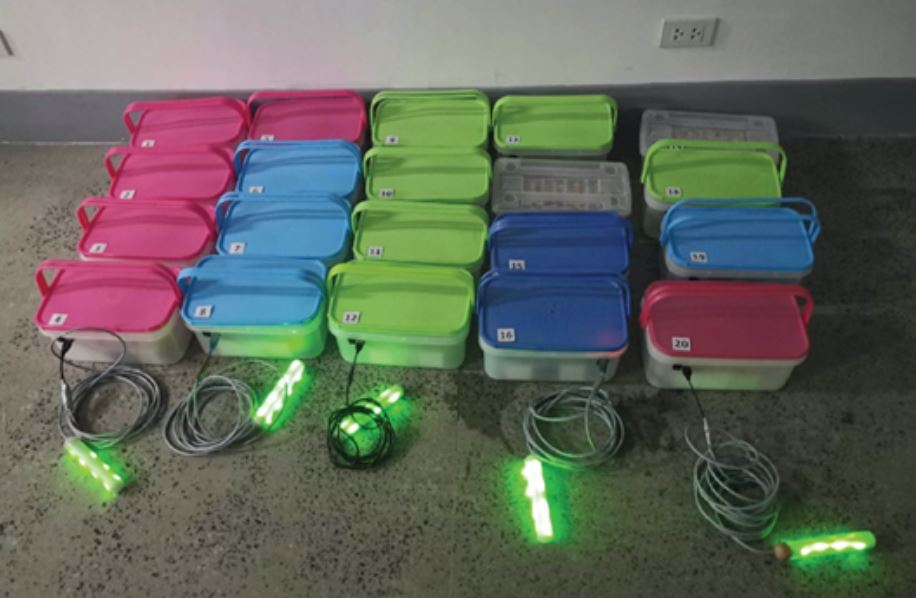Philippine university develops pollution-powered battery lights that clean lakes

The Technological Institute of the Philippines (T.I.P.) has developed pollution-powered battery lights that also clean lakes as they are used by fisherfolk.
The Department of Science and Technology (DOST) report on the T.I.P. innovation released on May 7, 2021, described the iLAWA as a battery technology using recycled aluminum that lights up when submerged underwater.
Derived from the Filipino phrase ilaw mula sa lawa (light from the lake), iLAWA gets its power from the electrolytes in the water.
When in use, the battery cleans the water in the lake by removing its phosphate content that comes from agricultural and residential runoffs.
The T.I.P. research team composed of engineers Niel Jon Carl Aguel, Ana Luz Callao, Paul Vincent Nonat, and Rowel Facunla led by Dr. Drandreb Earl O. Juanico, first conceptualized iLawà in 2016 to address energy-related problems that the island of Talìm Island in the middle of Laguna Lake has been experiencing. Their earliest prototype received recognition in 2017, bagging them an award from a non-government organization advocating sustainable energy.
Seeing the potential of this renewable energy (RE) innovation, the T.I.P. team pushed for its further enhancement and has successfully received funding support from the Department of Science and Technology’s (DOST’s) TECHNICOM Program for prototype development, field testing, and market validation. The project was monitored by the DOST-Philippine Council for Industry, Energy and Emerging Technology Research and Development (DOST-PCIEERD).
With ample support for the project, the team was able to optimize the prototype with its cell volume and mass reduced by 90% and 73%, respectively, while increasing power output by 89%. These technical improvements led to greater potential uses that require higher electrical power levels.

To date, the team behind iLawà has forged several partnerships among material suppliers for the commercialization phase and technology adopters such as the Federation ng Mangingisda ng Bayan ng Binangonan, a fisherfolk cooperative that operates in Barangay Ithan, municipality of Binangonan in the province of Rizal.
The T.I.P. team envisions that the widespread adoption of iLawà will consequently promote aluminum recycling and help remediate polluted lake waters. The release of phosphates through chemical reactions in the battery will then improve water quality. Furthermore, it will contribute in minimizing fish kills in lakes and enhance the fishing livelihood in the towns surrounding the lake.
DOST-PCIEERD Executive Director Enrico C. Paringit said, “The conscious efforts of T.I.P to boost the livelihood of Filipino fisherfolks by developing a durable, cost-effective innovation, not only will TIP’s technology produce clean energy but also improve lake environments. We look forward to seeing iLawà light up Philippines’ aquacultural areas, rivers, and even coastal waters.”
T.I.P, a USAID-recognized Model Career Center, has also teamed up with DOST to develop road safety training software for truck drivers.
SEND CHEERS in the comments below to the Technological Institute of the Philippines for developing pollution-powered battery lights that can clean lake water!
Good News Pilipinas is celebrating its 15th Anniversary in 2021 by giving away prizes! Subscribe to our Good News Pilipinas! TV YouTube channel and enter the raffle by sending us an email to editor@goodnewspilipinas.com
The post Philippine university develops pollution-powered battery lights that clean lakes appeared first on Good News Pilipinas.
Source: Good News Philippines

No comments: